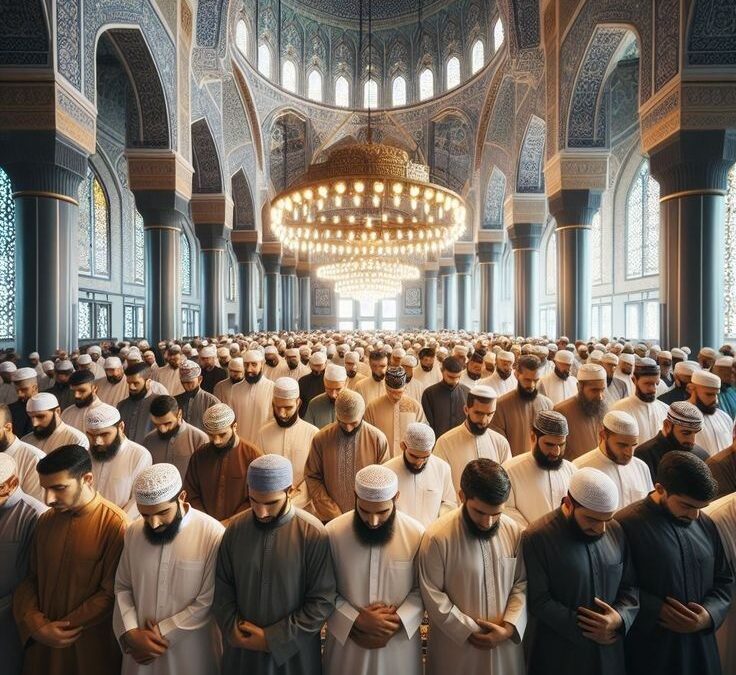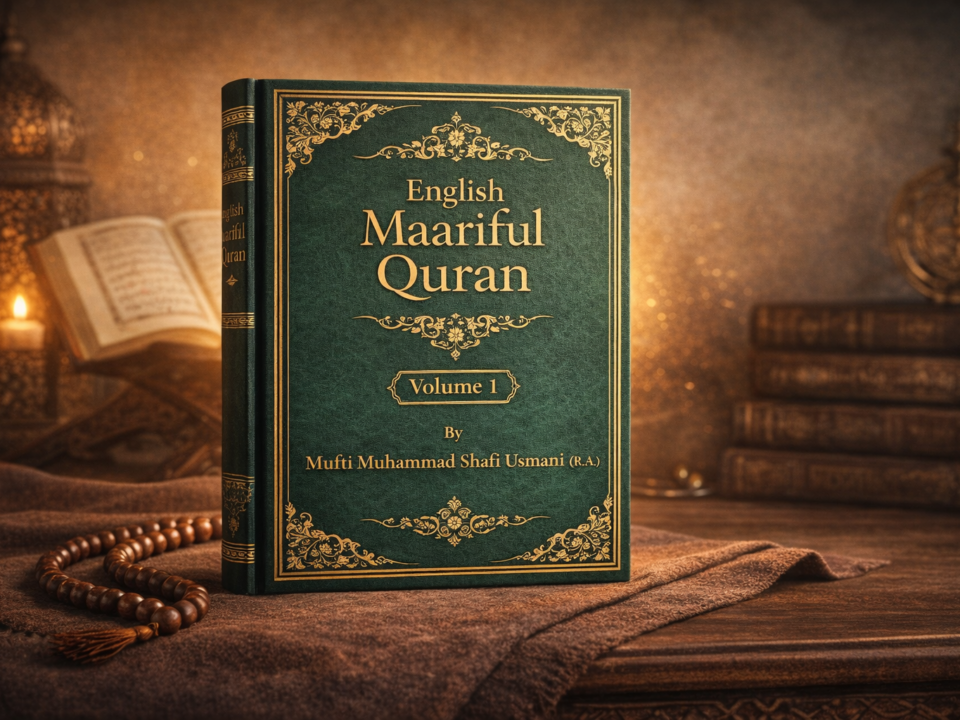Days of Hajj: A Spiritual Journey of Faith and Unity
Introduction
Hajj, one of the Five Pillars of Islam, is a sacred pilgrimage that every physically and financially able Muslim must undertake at least once in their lifetime. This journey to the holy city of Mecca is an essential religious duty, and it consists of several days of rituals and ceremonies that hold profound spiritual significance. In this blog post, we will explore the Days of Hajj, shedding light on the key rituals and their spiritual importance.Day 1: 8th Dhul-Hijjah – Tarwiyah Day
The journey begins on the 8th day of Dhul-Hijjah, known as Tarwiyah Day. Pilgrims gather in Mina, a tent city just outside Mecca, and spend the night there in reflection and prayer. Tarwiyah means ‘to quench one’s thirst,’ symbolizing the spiritual nourishment and preparation for the days ahead.Day 2: 9th Dhul-Hijjah – Arafah Day
The 9th day of Dhul-Hijjah is the most crucial day of Hajj: Arafah Day. Pilgrims leave Mina for the plain of Arafah, where they stand in prayer and supplication from dawn until sunset. This day symbolizes the Day of Judgment, and it is believed that Allah forgives the sins of those who sincerely repent and seek His mercy.Day 3: 10th Dhul-Hijjah – Eid al-Adha and Stoning the Devil
The 10th day of Dhul-Hijjah is known as Eid al-Adha or the Festival of Sacrifice. Pilgrims return to Mina, and after the Eid prayer, they perform the symbolic act of stoning the Devil by throwing pebbles at three pillars. This act commemorates the Prophet Ibrahim’s (Abraham) rejection of Satan’s temptation and his willingness to sacrifice his son, Isma’il (Ishmael), in obedience to Allah’s command.Days 4-5: 11th-12th Dhul-Hijjah – Stoning the Devil Continues
The ritual of stoning the Devil continues on the 11th and 12th days of Dhul-Hijjah. Pilgrims throw pebbles at the three pillars in Mina to symbolize the rejection of evil and the triumph of faith.Day 6: 13th Dhul-Hijjah – Farewell Tawaf
On the 13th day of Dhul-Hijjah, pilgrims return to Mecca to perform the Farewell Tawaf, circumambulating the Kaaba one last time. This act signifies their farewell to the holy city and the conclusion of their Hajj journey.Spiritual Significance of the Days of Hajj- Submission to Allah’s Will: The Days of Hajj reflect the story of Prophet Ibrahim (Abraham) and his unwavering obedience to Allah’s commands. Pilgrims reenact his actions, demonstrating their submission to Allah’s will and the importance of trust in Him.
- Unity and Equality: Hajj brings together Muslims from all walks of life, transcending geographical, cultural, and social boundaries. All pilgrims dress in simple white clothing, emphasizing the equality and unity of the Ummah (Muslim community).
- Repentance and Forgiveness: Arafah Day, in particular, is a day of profound repentance and forgiveness. It is believed that Allah’s mercy descends upon the pilgrims standing at Arafah, granting them forgiveness for their sins.
- Renewal of Faith: Hajj serves as a spiritual reset for many Muslims, renewing their faith and commitment to Islam. The rituals performed during these days provide an opportunity for self-reflection and self-improvement.
Conclusion
The Days of Hajj are a time of immense spiritual significance for Muslims worldwide. They offer an opportunity for believers to strengthen their faith, seek forgiveness, and experience unity with their fellow Muslims. As pilgrims undertake the various rituals during these days, they not only commemorate the actions of the prophets but also reaffirm their commitment to Islam’s core values of submission, equality, and devotion to Allah. In the end, Hajj is not just a physical journey but a spiritual one that leaves a lasting impact on the hearts and souls of those who undertake it.عنوان: ایام حج: ایمان اور اتحاد کا روحانی سفر
تعارف
حج، اسلام کے پانچ ستونوں میں سے ایک، ایک مقدس حج ہے جسے ہر جسمانی اور مالی طور پر استطاعت رکھنے والے مسلمان کو اپنی زندگی میں کم از کم ایک بار ضرور کرنا چاہیے۔ مقدس شہر مکہ کا یہ سفر ایک ضروری مذہبی فریضہ ہے، اور یہ کئی دنوں کی رسومات اور تقاریب پر مشتمل ہے جو گہری روحانی اہمیت رکھتے ہیں۔ اس بلاگ پوسٹ میں، ہم حج کے ایام کو تلاش کریں گے، اہم رسومات اور ان کی روحانی اہمیت پر روشنی ڈالیں گے۔دن 1: 8 ذوالحجہ – یوم ترویہ
یہ سفر 8 ذی الحجہ کو شروع ہوتا ہے جسے یوم ترویہ کہا جاتا ہے۔ حجاج کرام مکہ سے بالکل باہر ایک خیمے کے شہر منیٰ میں جمع ہوتے ہیں اور رات وہاں عبادت اور عبادت میں گزارتے ہیں۔ ترویہ کا مطلب ہے ‘اپنی پیاس بجھانا’، جو روحانی پرورش اور آنے والے دنوں کی تیاری کی علامت ہے۔دن 2: 9 ذوالحجہ – یوم عرفہ
9 ذوالحجہ کا دن حج کا سب سے اہم دن ہے: یوم عرفہ۔ حجاج منیٰ سے میدان عرفہ کے لیے روانہ ہوتے ہیں، جہاں وہ فجر سے غروب آفتاب تک نماز اور دعا میں کھڑے ہوتے ہیں۔ یہ دن قیامت کے دن کی علامت ہے، اور یہ خیال کیا جاتا ہے کہ اللہ ان لوگوں کے گناہوں کو بخش دیتا ہے جو سچے دل سے توبہ کرتے ہیں اور اس کی رحمت چاہتے ہیں۔دن 3: 10 ذوالحجہ – عید الاضحی اور شیطان کو سنگسار کرنا
ذوالحجہ کے دسویں دن کو عید الاضحی یا قربانی کا تہوار کہا جاتا ہے۔ حجاج منیٰ واپس آتے ہیں، اور عید کی نماز کے بعد، وہ تین ستونوں پر کنکریاں مار کر شیطان کو سنگسار کرنے کا علامتی عمل انجام دیتے ہیں۔ یہ عمل حضرت ابراہیم (ابراہیم) کے شیطان کے فتنہ کو مسترد کرنے اور اللہ کے حکم کی تعمیل میں اپنے بیٹے اسماعیل (اسماعیل) کو قربان کرنے کے لئے تیار ہونے کی یادگار ہے۔دن 4-5: 11-12 ذوالحجہ – شیطان کو سنگسار کرنا جاری ہے
شیطان کو سنگسار کرنے کی رسم ذوالحجہ کی گیارہویں اور بارہویں تاریخ کو جاری رہتی ہے۔ حجاج منیٰ میں تین ستونوں پر کنکریاں پھینکتے ہیں تاکہ برائی کے رد اور ایمان کی فتح کی علامت ہو۔دن 6: 13 ذوالحجہ – الوداعی طواف
ذوالحجہ کے 13 ویں دن، حجاج کرام آخری بار کعبہ کا طواف کرتے ہوئے الوداعی طواف کے لیے مکہ واپس آتے ہیں۔ یہ عمل مقدس شہر سے ان کی الوداعی اور ان کے حج کے سفر کے اختتام کی علامت ہے۔ایام حج کی روحانی اہمیت
اللہ کی مرضی کے سامنے سر تسلیم خم کرنا: حج کے ایام حضرت ابراہیم (علیہ السلام) کی کہانی اور اللہ کے احکام کی ان کی غیر متزلزل اطاعت کی عکاسی کرتے ہیں۔ حجاج اس کے اعمال کو دوبارہ ظاہر کرتے ہوئے، اللہ کی مرضی اور اس پر بھروسہ کی اہمیت کو ظاہر کرتے ہوئے. اتحاد اور مساوات: حج جغرافیائی، ثقافتی اور سماجی حدود سے بالاتر ہوکر زندگی کے تمام شعبوں سے تعلق رکھنے والے مسلمانوں کو اکٹھا کرتا ہے۔ تمام حجاج کرام سادہ سفید لباس زیب تن کرتے ہیں، جو امت (مسلم کمیونٹی) کی مساوات اور اتحاد پر زور دیتے ہیں۔ توبہ اور استغفار: یوم عرفہ، خاص طور پر، گہری توبہ اور استغفار کا دن ہے۔ یہ خیال کیا جاتا ہے کہ عرفہ میں کھڑے حاجیوں پر اللہ کی رحمت نازل ہوتی ہے اور انہیں ان کے گناہوں کی معافی عطا ہوتی ہے۔ ایمان کی تجدید: حج بہت سے مسلمانوں کے لیے ایک روحانی بحالی کا کام کرتا ہے، ان کے ایمان اور اسلام سے وابستگی کی تجدید کرتا ہے۔ ان ایام کے دوران ادا کی جانے والی رسومات خود سوچنے اور خود کو بہتر بنانے کا موقع فراہم کرتی ہیں۔نتیجہ
حج کے ایام دنیا بھر کے مسلمانوں کے لیے بہت زیادہ روحانی اہمیت کا وقت ہیں۔ وہ مومنوں کو اپنے ایمان کو مضبوط کرنے، معافی مانگنے اور اپنے ساتھی مسلمانوں کے ساتھ اتحاد کا تجربہ کرنے کا موقع فراہم کرتے ہیں۔ جیسا کہ ان دنوں میں حجاج مختلف رسومات ادا کرتے ہیں، وہ نہ صرف انبیاء کرام کے اعمال کی یاد مناتے ہیں بلکہ اسلام کی بنیادی اقدار کی اطاعت، مساوات اور اللہ کے لیے عقیدت کے ساتھ اپنی وابستگی کا اعادہ کرتے ہیں۔ آخر میں، حج صرف ایک جسمانی سفر نہیں ہے بلکہ ایک روحانی سفر ہے جو اسے کرنے والوں کے دلوں اور روحوں پر دیرپا اثر چھوڑتا ہے۔Get started
Related
Related posts
February 18, 2026
February 18, 2026




English Maariful Quran Volume 4 by Mufti Muhammad Shafi Usmani (R.A.) – English Translation and Tafseer Book Cover
English Maariful Quran Volume 4 – Tafseer by Mufti Muhammad Shafi Usmani (R.A.)
Read more